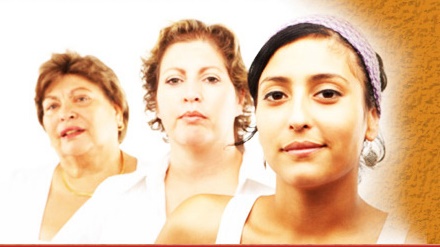When I’ve given trainings to healthcare and social services providers about cancer in the LGBTQ communities, I always find it interesting to ask the audience, “Does it matter who a breast lump spent Valentine’s Day with?” Or, “Does it matter what country the lump’s grandparents were born in?” Most participants say, overwhelmingly, no, a lump is a lump is a lump: we should treat patients the same irrespective of their racial and ethnic backgrounds or their sexual orientation. But as we’ve learned this National Minority Cancer Awareness Week, cancer affects different populations differently, and minority groups in the United States continue to bear a greater cancer burden.
Much of this difference is due to factors like poverty and lack of access to prevention/detection services and high-quality treatment, according to reports produced by the American Cancer Society. For instance, African Americans and Hispanics in the US have higher poverty rates than whites and are less likely to have health insurance, making it harder for them to get the care they need. LGBTQ people may be affected by homophobia and transphobia in the doctor’s office or may not have anyone to talk to about the different ways their cancer survivorship is affected by their LGBTQ identities.
At the Diverse Elders Coalition, we are inspired by the work being done to bring awareness to health disparities and promote healthy living amongst our diverse communities. In addition to the National LGBT Cancer Network’s support groups that we highlighted last week, I wanted to share with you some of the local and national programs that are raising up and supporting the experiences of minority populations facing a cancer diagnosis.

- The Sisters Network, Inc. offers free mammograms, medical-related lodging, office visits and prosthesis to eligible Black breast cancer survivors through their Breast Cancer Assistance Program.
- The Native American Cancer Research Corporation is an American Indian, community based, non-profit organization that works to enroll Native Americans in cancer studies and provides community support to Natives facing a cancer diagnosis.
- The Asian Pacific Islander National Cancer Survivorship Network (APINCSN) offers an incredible archive of survivor stories called their Videos of Hope, celebrating cancer survivorship in the AAPI communities. They also offer webinars for healthcare providers and a resource directory for AAPI survivors.
- Latinas Contra Cancer (LCC) was founded to address the void in culturally and linguistically sensitive programs that meet the health care needs of Latinos around issues of cancer. They offer Spanish-language cancer support groups, provide culturally and linguistically competent patient navigators, and host the National Latino Cancer Summit.
The U.S. HHS Office of Minority Health website is also a great general resource for understanding and eliminating health disparities facing our communities, including cancer. So if someone asks you whether it matters where a lump grew up or who it goes to bed with at night, remember: Yes. Not all cancer is created equal, and our diverse elder communities may have different needs when it comes to survivorship. If you have a story about you or a loved one surviving cancer, please tell us about it! We use our robust diverse elders story archive to advocate on behalf of our communities and eliminate the health disparities we face.
The opinions expressed in this article are those of the author and do not necessarily reflect those of the Diverse Elders Coalition.

